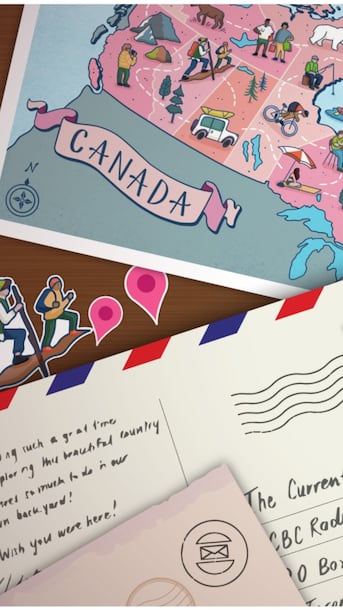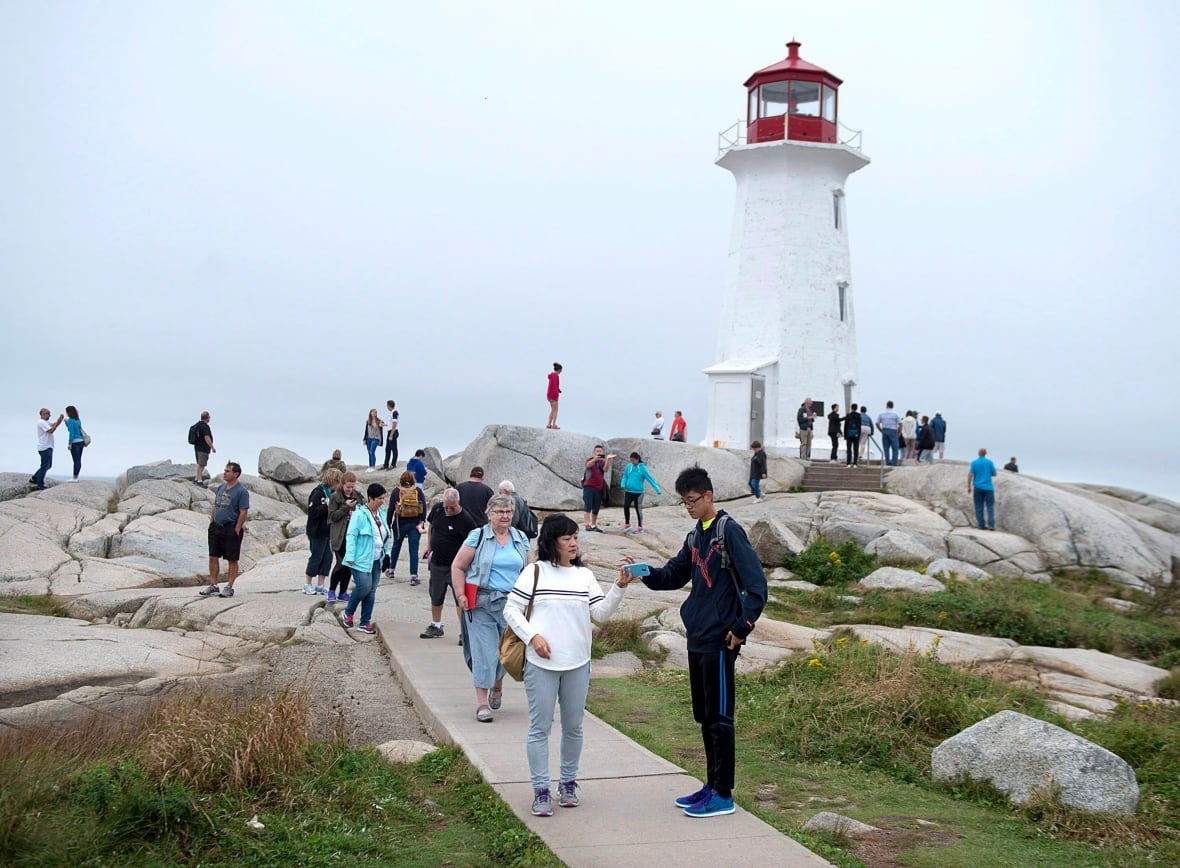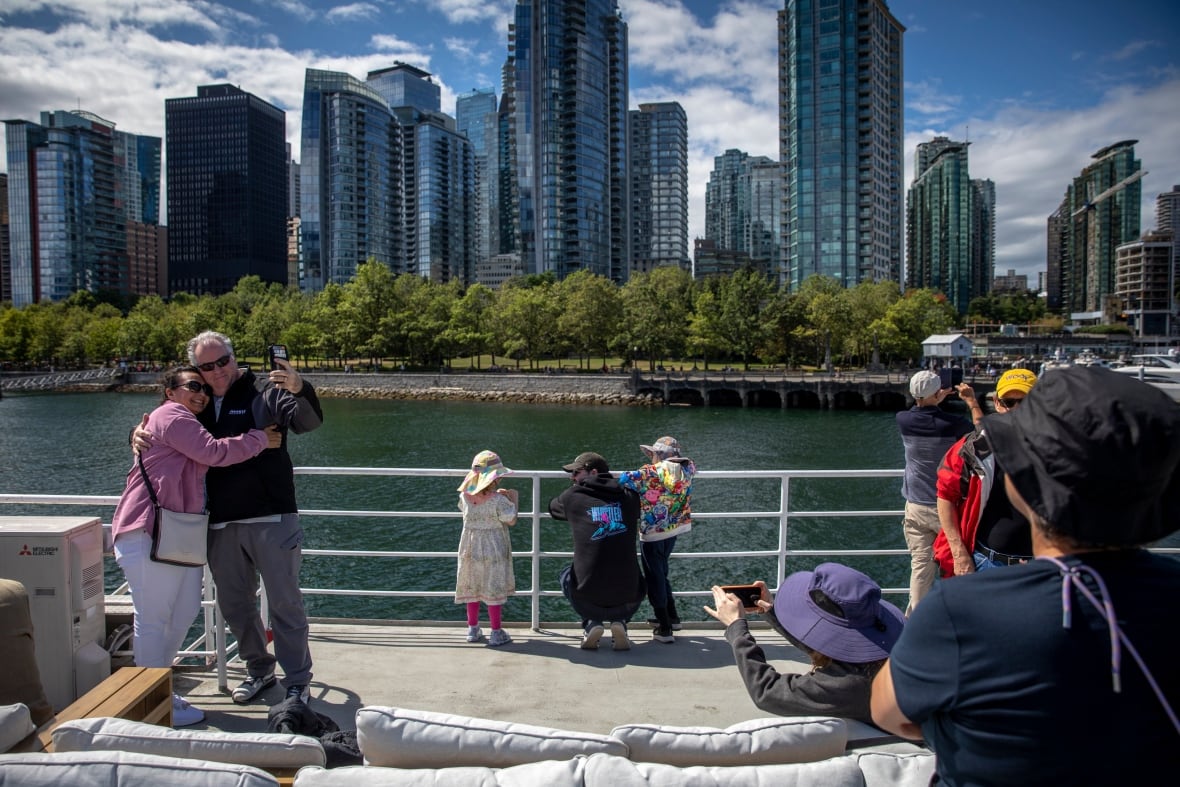Hoping to book an affordable Canadian vacation this summer? Sorry and good luck

Whether you're camping under the stars, jumping off the dock at a lakeside cottage, strolling the coast or exploring a new city, there's arguably nothing better than a summer vacation in Canada.
Assuming, of course, you can afford it.
From accommodations to flights, Canadians may be noticing higher prices on domestic travel this season. And that's in part because of increased demand, say industry experts who note more Canadians are opting for summer trips at home instead of travelling to the U.S.
"Canadians are increasingly travelling within Canada," said Frédéric Dimanche, a professor in the Ted Rogers School of Hospitality and Tourism Management at Toronto Metropolitan University.
And given that the industry is still recovering from losses incurred during the COVID-19 pandemic, combined with inflation, the increased cost of operations, and now, increased demand, this translates into higher prices for consumers — especially in urban centres, Dimanche told CBC News.
"Airlines do this all the time. Hoteliers do this all the time. If there is increased demand, prices are likely to go up."

For some would-be travellers, the cost is prohibitive or simply too high to justify.
Natasha Beitman Brener, a 33-year-old lawyer in Kingston, Ont., says she was hoping to take a five-day road trip with her mother this summer after getting some unexpected and rare time off between trials.
They looked at locations such as Ottawa, Quebec City and Manitoulin Island, but every single option would have cost between $3,000 and $5,000 for five days once you tack on expenses, Brener said. The Airbnb or hotel alone would have cost $2,000 anywhere, she added.
So, they're not going.
"It's not even about being able to afford it, although that's true, too. But it just seems so crazy when we used to go to Europe for two months in the summer" for $15,000, Brener said.
"We're the folks buying Canadian, or not American, in the grocery stores and we won't travel to the States, but we also can't justify $300 per night for a studio Airbnb."
'Not typical for Canadians'Canada's tourism sector is seeing strong interest from domestic travellers this summer, partially as a show of support for local communities, Amy Butcher, vice-president of public affairs at the Tourism Industry Association of Canada, told CBC News in a statement.
"Tourism is one of Canada's strongest economic engines," said Butcher, noting that it delivered $130 billion in economic activity in 2024 — 75 per cent of which was from Canadian domestic travel.
Canadians are indeed opting to skip the U.S. so far this summer. The number of Canadians returning from trips to the U.S. by air fell 22.1 per cent in June compared to a year ago, according to Statistics Canada, and Canadian return trips by automobile dropped by 33.1 per cent.
It's too soon to have much summer domestic travel data, but Statistics Canada noted in June that tourism spending in Canada by Canadian residents was up 0.8 per cent in the first quarter of 2025, driven by accommodation spending.
And Anusha Arif, an economist with TD Economics, predicted "solid gains" in Canadian domestic travel in a recent report, while also noting an increase in domestic travel at major Canadian airports.
In March, Airbnb reported a 20 per cent increase in searches for domestic stays.
Flight Centre Canada told CBC News its seen an uncharacteristic five per cent bump in its domestic travel this summer, which may not seem high until you consider that, typically, they say 80 per cent of travel booked by Canadians over the summer is to international locations.
"This is not typical for Canadians," Amra Durakovic, head of public relations and communications for the Flight Centre Travel Group Canada, told CBC News.
"We're thinking that five per cent is coming from less new bookings to the U.S. That Canadians, instead of travelling to their favourite U.S. destinations, they're opting to stay."

This summer surge is driving perception of a price boost, Durakovic added. Still, it's not necessarily that Canada is dramatically more expensive, but that demand is high and flexible inventory is tight — especially if you're booking something close to your departure date, Durakovic said.
She gave the example of a colleague working with a family of three hoping to book a trip from Toronto to Halifax next month for five days. It was going to cost them around $6,000, she said.
"They're reconsidering their trip," she said.
"Sticker shock does impact Canadians ... but I do want to clarify that timing really matters."

The average daily rate for a hotel room in Canada this June increased three per cent (or about ($7 per night) compared to June last year, according to industry data provided by Costar, a global provider of real estate data, analytics and news.
That's based on a sample of 63 per cent of hotel rooms in Canada.
As an extremely unscientific gauge of the cost of booking last-minute accommodations, CBC looked up various options for a family of four around the same week in mid-August using a variety of online booking sites, while keeping in mind that booking earlier in the year would have likely yielded lower prices and more availability.
Still, you're unlikely to get a week-long August cottage rental in southern Ontario for less than $2,000 (but the average is more like $3,000, according to Airbnb). Four nights in a Halifax hotel is going to cost you between $1,200 and $2,300 according to Travelocity, depending on how central you want to be.
A single weekend in Vancouver hotel right in the heart of downtown will cost at minimum $1,200, according to Expedia, and that's similar for a weekend in the Rockies, according to Flight Centre Canada. The few beachfront homes still available to rent in P.E.I. will cost around $4,000 per week on VRBO.
And while camping is a less expensive option (assuming you already own the equipment), some campsites near popular tourist destinations have been known to sell out almost immediately, and officials often recommend booking four or five months in advance in order to nab a spot.
For instance, there were zero tent sites available for any weekend stay in August at Sandbanks Provincial Park in Picton, Ont., and exactly one "poor" quality site left for a mid-week stay as of Tuesday. There was not a single site available at Porteau Cove Provincial Park near Vancouver for any night in August.

Last month, Canadian Culture and Identity Minister Steven Guilbeault announced the federal government's new Canada Strong Pass that makes Canada's historic sites and parks free to visit and rail travel less expensive for young people.
The aim is to promote domestic tourism.

But what the Canada Strong Pass doesn't change is the price of hotels and domestic flights.
Brener, in Kingston, said she's disappointed she won't be taking the trip with her mother, since it's rare for them to have time to travel together. But even local options were shockingly expensive, she said. So instead, they might take a day trip to nearby Prince Edward County.
She is also hoping to visit Halifax with her husband soon, but will be waiting until mid-October for the off season.
"That's the only way to keep a five-day trip under $6,000 with flights. It's just crazy."
cbc.ca



